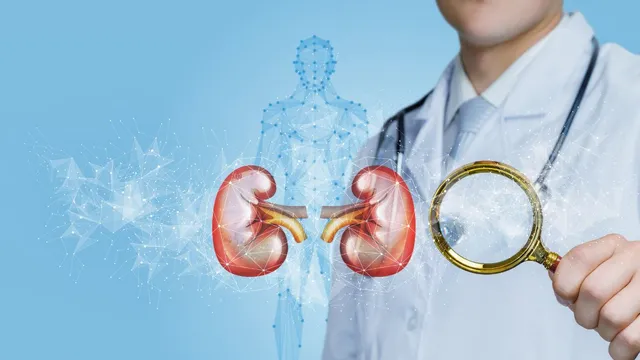- By Priyanka Munshi
- Fri, 09 Aug 2024 05:32 PM (IST)
- Source:JND
Having complete knowledge about kidney donation is essential, as it enables individuals to make life-saving decisions. The kidneys are vital organs that filter waste and excess fluid from the blood, regulate blood pressure, and maintain the proper balance of key minerals in the body. When the kidneys fail, a person may need dialysis or a kidney transplant to survive.
Kidney donation, whether from a living or deceased donor, can save a life. Both potential donors and recipients, along with their families, must understand the procedure, risks, benefits, and impacts of kidney donation. Donors should be aware of the potential long-term health effects of donation, as well as the ethical, legal, and medical aspects involved. In a conversation with Jagran English, Dr. Srikanth Gundlapalli, a consultant nephrologist at the Asian Institute of Nephrology and Urology in Hyderabad, discussed what to expect before, during, and after kidney donation.
Kidney donation is one of the most common and life-saving forms of donation. For those considering becoming kidney donors, understanding what to expect before, during, and after the donation process is crucial. This guide will help potential donors navigate the process.
Before Kidney Donation
- Initial Screening: The process begins with a series of tests to determine if you are a suitable donor. These tests include blood and urine analyses to check your blood type and basic kidney function.
- Medical Evaluation: Following the initial screening, a comprehensive medical examination is conducted. This includes a detailed health history, physical examination, and additional tests such as imaging scans (CT or MRI) to evaluate your kidneys and other organ functions, assessing future risks.
- Psychological Assessment: Donating a kidney is a significant decision, and it’s essential to be mentally and emotionally prepared. A psychologist or counselor will assess your understanding of the risks and benefits and ensure you have a strong support system.
- DTPA Scan: A DTPA scan of the kidneys is performed to assess the split function of each kidney and to rule out the long-term possibility of developing kidney disease in the donor.
- Tissue Crossmatch And HLA Testing: These tests are conducted within 10 days of the tentative transplant date to determine matching and tissue compatibility.
- Informed Consent: Before proceeding, you will receive detailed information about the procedure, including potential risks and benefits. You must provide informed consent, confirming your willingness to proceed voluntarily.
During Kidney Donation
Kidney donation surgery is a well-established procedure, and advancements in medical technology have made it safer and less invasive. Here’s what happens during the surgery:
- Preparation: On the day of surgery, you will be admitted to the hospital and prepared for the operation. This includes fasting, receiving intravenous (IV) fluids, and anesthesia.
- Surgery: The procedure is typically performed laparoscopically, involving small incisions in the abdomen. Through these incisions, the surgeon inserts a camera and surgical instruments to remove the kidney. This minimally invasive approach usually results in shorter recovery times and less pain.
- Duration: The surgery generally lasts between 2 to 3 hours. You will be closely monitored throughout the procedure to ensure everything goes smoothly.
After kidney Donation
Recovery and adjustment are vital parts of the kidney donation journey. Here’s what to expect post-surgery:
- Immediate Recovery: After the surgery, you will be moved to a recovery room where medical staff will closely monitor your condition. Pain management is a priority, and you will receive medications to help manage discomfort.
- Hospital Stay: Most donors stay in the hospital for 2 to 3 days post-surgery. During this time, you will start moving around and gradually resume eating and drinking.
- At Home: Full recovery can take 4 to 6 weeks. It’s essential to follow your doctor’s instructions, including avoiding heavy lifting and strenuous activities during this period. Regular follow-up appointments will ensure your health and recovery are on track.
- Long-Term Health: Donors typically return to their regular activities after recovery with no long-term health issues. It’s important to maintain a healthy lifestyle, including regular exercise, a balanced diet, and routine medical check-ups.
Finally, Dr. Srikanth emphasised that donating a kidney is a profound act of generosity that can save a life. Understanding what to expect before, during, and after the process can help potential donors make informed decisions and prepare adequately for the journey.

